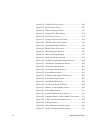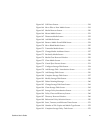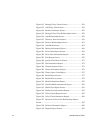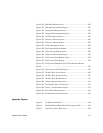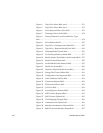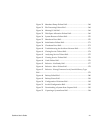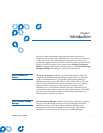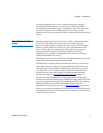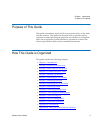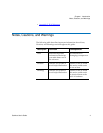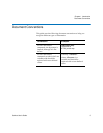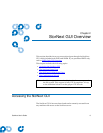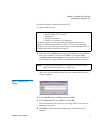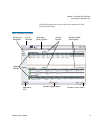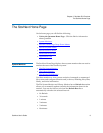
Chapter 1 Introduction
StorNext User’s Guide 2
reconfigure applications to retrieve data from disparate locations.
Instead, applications continue to access files normally and SNSM
automatically handles data access – regardless of where the file resides.
As data movement occurs, SNSM also performs a variety of data
protection services to guarantee that data is safeguarded both on site and
off site.
About Distributed LAN
Clients 1
StorNext supports distributed LAN clients. Unlike a traditional StorNext
SAN client, a distributed LAN client does not connect directly to
StorNext via fibre channel or iSCSI, but rather across a LAN through a
gateway system called a distributed LAN server. The distributed LAN
server is itself a directly connected StorNext client, but it processes
requests from distributed LAN clients in addition to running
applications. Any number of distributed LAN clients can connect to
multiple distributed LAN servers.
Besides the obvious cost-savings benefit of using distributed LAN clients,
there will be performance improvements as well.
Distributed LAN clients must be licensed in the same way as StorNext
SAN clients. When you request your permanent StorNext license, you
will need to specify the number of distributed LAN clients you plan to
use. Naturally, you can always purchase additional distributed LAN
client licenses as your needs expand. For more information about
StorNext licensing, see Entering the StorNext License
on page 37.
StorNext provides distributed LAN client information via the status
monitors on the StorNext home page, SNSM home page, and SNFS home
page. More detailed information is available through the Clients Report
and the Distributed LAN Client Performance Report. For more
information about StorNext reports, see StorNext Report
s on page 264.
Before you can fully use distributed LAN clients, you must first configure
a distributed LAN server and distributed LAN clients as described in the
StorNext Installation Guide.



